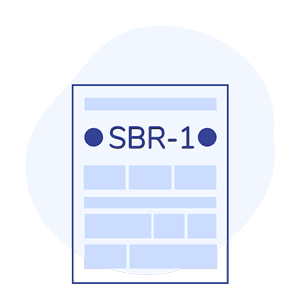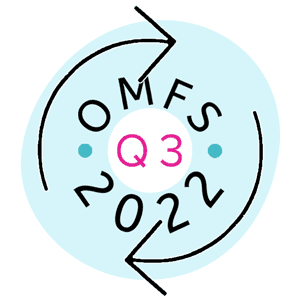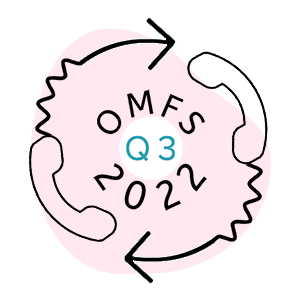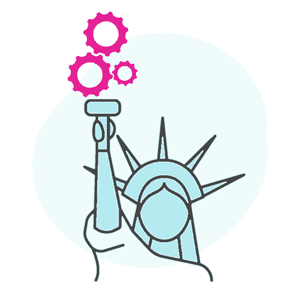Sedgwick Asserts CA "Loosened" Appeal Process
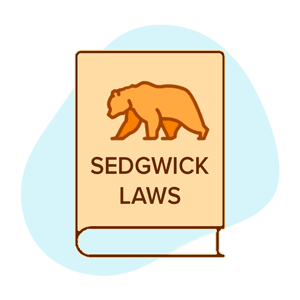
California workers' comp is — supposedly — governed by laws, enacted by the state legislature, and carried out by the Division of Workers’ Compensation (DWC). For disputes over improper payment denials, California laws — supposedly — dictate how providers must submit appeals, and how claims administrators must respond to those appeals.
Yet, instead of adhering to California law, Sedgwick is operating its own internally-governed appeals process for improper payments, which Sedgwick dubiously asserts is somehow sanctioned by the state. According to a Sedgwick representative, California altered how Sedgwick is allowed to respond to providers’ appeals:
"California is kind of strict with what we're allowed to do at our level, but they've changed it recently and kind of loosened it up just a little bit… " [emphasis added]
Come again? California allows Sedgwick special “loosened” appeal privileges?
Below, we show precisely how Sedgwick is circumventing California law and choosing to reconsider improperly denied bills at their own discretion. Even worse, Sedgwick is telling doctors that California altered the rules to accommodate Segwick’s whims.
Employers, it makes us very sad to imagine the “loosened” version of workers’ comp law Sedgwick may be relaying to your injured workers, who cannot possibly know better unless assisted by an attorney.
Sedgwick Asserts CA Allows Internal Reconsideration
As we reported recently, Sedgwick authorized treatment furnished to an injured worker, but subsequently denied the doctor reimbursement for this authorized treatment. Sedgwick denied payment with a string of false (as Sedgwick now tacitly admits) assertions that Sedgwick wasn't liable for payment, as confirmed during a call with a Segwick representative.
Unfortunately, California’s IBR liability loophole allowed the DWC to rule the dispute ineligible for Independent Bill Review (IBR), in part because Sedgwick (falsely) asserted that the doctor was not in the employer's Medical Provider Network (MPN).
As such, daisyBill called Sedgwick to pose a simple question: What is the name of the employer’s MPN, to which the doctor allegedly doesn’t belong?
After the daisyBill representative was on hold for 54 minutes, a Sedgwick representative finally picked up the phone. But instead of identifying the MPN (an issue we’ll explore in future articles), the representative gave a surprising response: an offer to reprocess the bill. Just like that.
More astoundingly, the representative revealed that Sedgwick is running its own parallel, internal, and (according to Sedgwick) state-sanctioned appeal process that requires the doctor to call Sedgwick to receive payment for authorized treatment.
Speaker |
Call Transcription |
Sedgwick |
Yeah, I can see where it says 'payment denied because of services performed by a provider outside of...' Okay. So, here I think it's — let me double check with someone. |
Sedgwick |
How bizarre. I think I might be able to get this fixed for you but I just have to have somebody give me the go-ahead because it's California. |
daisyBill |
Okay. And could you clarify on the fix? |
Sedgwick |
If I get the go-ahead, I'm gonna send it back through for you to be reprocessed. |
… |
|
Sedgwick |
I just got the go-ahead, so that's a good thing. All right. |
Sedgwick |
California is kind of strict with what we're allowed to do at our level, but they've changed it recently and kind of loosened it up just a little bit so we can send things back through if it's clear that the error was on our part. Does that make sense? |
… |
|
Sedgwick |
And then that will take 21 business days, but it should get pushed through this time for you. |
How bizarre, indeed.
After falsely denying payment for the original bill and Second Review appeal, then circumventing IBR, Sedgwick abruptly reversed course, agreeing to “get this fixed for you” — but only in response to probing questions from daisyBill.
From this exchange with a Sedgwick representative, daisyBill learned that California’s allegedly “loosened” appeal process apparently requires:
- A dedicated workers’ comp billing expert to call Sedgwick
- An hour or so on hold
- Asking sufficiently uncomfortable questions about MPN participation (which Sedgwick has yet to answer) to prompt a voluntary reconsideration
- 21 additional business days for payment, in addition to the 15 months already spent chasing Sedgwick down for reimbursement (and don’t hold your breath for “self-executing” penalty and interest payments).
It may seem odd to complain that Sedgwick is willing to acknowledge its error and pay what's owed. Don’t be fooled. Sedgwick’s parallel appeals process, as outlined above, is not a financially viable alternative to the proper appeals process (which Sedgwick routinely sidesteps).
Sedgwick “loosened” appeals process forces the doctor’s representative to sit on hold for extended periods of time, effectively limiting the number of “Sedgwick-style appeals” to at best 8 per day, per practice staff member — hardly a financially sustainable approach.
No Consequences for Sedgwick (Except Increased Profits)
This exchange demonstrates that Sedgwick’s own machinations, rather than California law, dictates how Sedgwick handles payment disputes. And why not? There are no consequences for Sedgwick’s scofflawery.
In fact, ignoring the law increases Sedgwick’s profits, because Sedgwick keeps the reimbursements owed to the doctor, unless the doctor devotes excessive time and resources to fighting each improper reimbursement.
Let's call this what it is: a parallel appeals process, created (or imagined) by Sedgwick, built on Sedgwick’s own version of underground regulations. Without accusing Sedgwick of knowingly orchestrating this parallel appeals process, we can establish the following:
- In agreeing to reprocess the bill, Sedgwick, by implication, admits the falsehood of the liability issues Sedgwick initially raised to deny payment for authorized treatment (and why not? No consequences, more profits).
- Sedgwick falsely identified the doctor’s Second Review appeal as a "duplicate" bill (again, no consequences, more profits).
- Sedgwick’s false liability assertions unjustly disqualified the dispute for IBR (once more for the cheap seats: no consequences, more profits).
- Sedgwick decided to reprocess the bill only after daisyBill called and grilled Sedgwick on its erroneous MPN claims.
Did some California state authority really "loosen things up a bit" so Sedgwick could force doctors through its own tailor-made payment appeals torture gauntlet?
Either way, this dispute demonstrates how a claims administrator can — far too easily — improperly deny payment for authorized treatment, use regulatory loopholes to thwart appeals, pay only of their own volition, and pay only those practices with enough expertise and time (54+ minutes) to jump through Sedgwick’s hoops.
If Sedgwick’s representative is to be believed (we wouldn’t accuse a claims administrator of lying, would we?) the state either “loosened” the rules, or simply let Sedgwick make its own. In either case, California clearly prioritizes Sedgwick’s profits over ensuring that doctors are properly reimbursed, and therefore financially able to care for injured workers.
Protect your practice. Harness the power of daisyBill software, data, and expertise for faster, better workers’ comp billing.
GET IN TOUCH
DaisyBill provides content as an insightful service to its readers and clients. It does not offer legal advice and cannot guarantee the accuracy or suitability of its content for a particular purpose.

